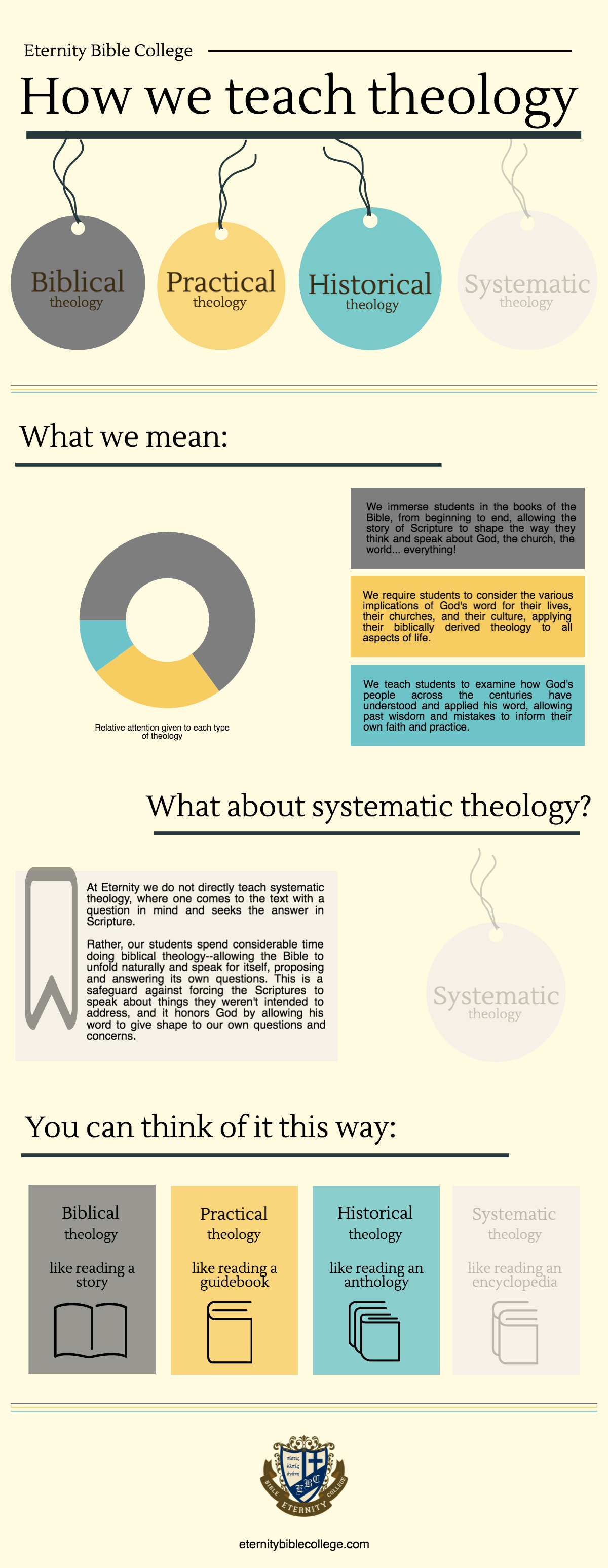In the previous three posts (FIRST, SECOND, and THIRD), I’ve argued that the terminal punishment (aka “annihilation”) view of hell deserves a chair at the Evangelical table. Before you sharpen your pitch-forks and stoke the fire, please make sure you read all four posts in this series. If you still think I’ve turned to the dark side or abandoned Christian orthodoxy, then so be it. I’ve tried my best to show that there are good, compelling, biblical arguments in favor of terminal punishment and that the eternal  conscious torment view of hell, while possessing some biblical merit, is not the only clear way to interpret the biblical text. In many cases, it’s not even the best way. I’m not an “Annihilationist,” but I do believe that this view has a good deal of biblical support. And Bible-believing Christians should consider its biblical arguments.
conscious torment view of hell, while possessing some biblical merit, is not the only clear way to interpret the biblical text. In many cases, it’s not even the best way. I’m not an “Annihilationist,” but I do believe that this view has a good deal of biblical support. And Bible-believing Christians should consider its biblical arguments.
And if I were a betting man, I’d say that many (most?) Christians believe in eternal conscious torment (or ECT), not because they arrived at that position by studying the Bible, but because it was handed down to them from someone else. This isn’t in itself wrong. There are many core doctrines that Christians should believe simply because they constitute what it means to be a Christian. The trinity, the deity of Christ, salvation by grace through faith, and several other core truths that have been codified in the early creeds (e.g. Nicene Creed). But the duration of hell is not one of these essential doctrines. While universalism was considered heretical by the early church in the 5th and 6th centuries (although I’m not sure how widespread this conclusion was), terminal punishment never was. It has always been an option for Christians.
So why do most Christians believe in ECT? Again, I don’t think it’s because they’ve sat down with an open mind and searched the Scriptures like a Berean. It’s fascinating that I never once questioned ECT until I started considering what the Bible actually says about hell, beginning in 2011. This is bewildering and somewhat embarrassing. I received a B.A. in Bible in 2000, an M.Div in 2003, and a Ph.D. in New Testament in 2007—and much of my Ph.D. was looking at Early Jewish and Christian views of the afterlife—and I never thought about the biblical reasons for ECT. I simply read ECT into every passage about future judgment without blinking an eye. When Jesus said, “…whoever believes will not perish but have everlasting life” (John 3:16) or “fear Him who has the power to destroy both body and soul in hell” (Matt 10:28), my biased interpretive lenses kicked into gear and read ECT into the words “perish” and “destroy.” And maybe “destroy” really does mean “the never ending act of torment but never quite being fully destroyed.” Either way, I only read these passages this way because I was conditioned to read them this way. I never realized, for instance, that Paul mentions the future punishment of unbelievers in more than 80 passages and never once clearly says that such punishment will be never ending (2 Thess 1:9 is the only passage that MIGHT suggest such a reading). For whatever reason, I assumed that Matthew 25:46, where Jesus mentions “eternal punishment” in contrast to “eternal life,” was one of many passages that supports ECT. I never knew that it was the only such passage in the Bible.
But I still haven’t landed yet. I need more time to study the relevant passages, question my own assumptions, read what the early church fathers had to say, and continue to bounce my ideas off of a community of scholars who will critique my interpretation. I don’t know which view I will ultimately hold. I’m leaning toward terminal punishment, but I still do see some merit in ECT. My one guarantee that I will make to you—call it a promise—is that I will go where the text leads. I stand on Scripture. As Martin Luther said about another issue: “Unless I am convinced by the testimony of the Holy Scriptures or by evident reason—for I can believe neither pope nor councils alone,” and I would include popish Christian figures or modern evangelical councils, “I consider myself convicted by the testimony of Holy Scripture, which is my basis.”
With Luther, the testimony of Holy Scripture is my bias. And I will go where the Bible leads any day of the week.
Now I know that for some of you this is not enough. No matter how much biblical evidence one provides, if the view being supported goes against what you’ve always believed, or what your favorite preacher tells you to believe, or what your church doctrinal statement says you must believe, you reject it.
This is deeply disheartening to me because I’ve seen such an unbiblical approach rear its ugly head over and over with regard to the duration of hell. I’ve received emails, Facebook messages, and phone calls from people wondering if I’m really an “Annihilationist.” My answer always begins and ends with the Bible, and somewhere along the way I tell them that I’m still working through the issues and will publicly say where I’m at when I’ve had the time to consider all the evidence. Some have appreciated my approach. Others simply write me off as a false teacher, a heretic, unEvangelical, or left-leaning in my theology, since I don’t wholeheartedly sign off on the ECT position, no matter how many biblical arguments I give.
Please hear my heart. I have no desire to challenge tradition simply to get a rise out of traditionalists. I don’t love to stir the pot or push people’s buttons just to get a reaction. I don’t enjoy controversy, nor am I’m trying to buck against my conservative roots. I don’t have a bone in my body that desires to be iconoclastic, disrespectful, or anti-conservative. One Facebook friend said that I was just trying to throw a pep-rally for left leaning evangelicals with my posts on hell. This was not only confusing and discouraging, but it actually really hurt. I cherish God’s word. I believe it has power and authority. I still hold to many so-called conservative values and doctrines, and in everything I say and write, my only desire is to glorify Christ by explaining and magnifying His word. It’s because I believe in the authority of the Bible that I say the things I do, question the traditions I’ve inherited, and more recently laid out the pros and cons for both terminal punishment and eternal conscious torment. I will only write and speak what I believe the word of God says. Isn’t this a good thing? Shouldn’t Christians appreciate this? Isn’t this what our conservative values teach us?
I have to admit, I’m growing more and more discouraged at the state of so-called “bible believing evangelicalism” that isn’t really all that interested in what the Bible actually says. Practically speaking, it’s tradition that has more authority than the inspired word of God breathed out by our Creator. I actually love tradition. I think it should be honored, consulted, and, at times, submitted to. But the Bible is our authority. Let’s live like it. Let’s reason like it. Lets hold to our doctrine in such a way that showcases the authority of the text.
Let me end on a positive note. Some of my former students who are now attending Bethlehem College and Seminary (Piper’s school) heard rumors that I was an “Annihilationist.” I asked these students what their reaction was when they heard this, and they said: “Well, we thought that you must have good biblical reasons for this view since you never believe anything without biblical support.” No pitch-forks. No accusations. Just a good deal of trust that I desire to go where the text leads.











